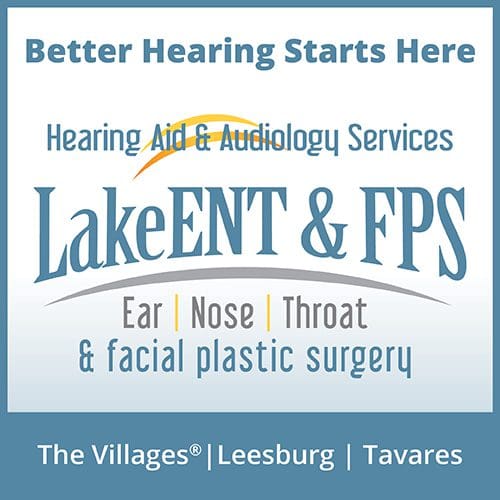
By AkersMedia
Thinking Big, building small

Tiny dwellings will make big impact on lives of vulnerable youth.
Story: Roxanne Brown and Theresa Campbell
Photos: Nicole Hamel
A local nonprofit is thinking in tiny terms to make the biggest impact for Lake County’s homeless unaccompanied youth and young adults aging out of the foster care system.
Since being founded in 2013, Forward Paths Foundation Inc. has helped at-risk youths by providing temporary housing, job skills and help completing their education, but its vision for the future involves building a tiny home community on private property gifted to the organization, located in Eustis.

Denise Burry
Forward Paths’ Founder and Executive Director Denise Burry, a certified Guardian ad Litem with Florida’s 5th Circuit Court and mother of eight children, says the venue will give the organization a less scattered feel. Today, the nonprofit organization rents homes throughout Lake County, mainly in Leesburg, to house youths.
Individuals will have their own rooms and spaces to care for in tiny homes within the supervised community they will call home until they transition out of the program ready to live successful, independent lives.
“I really think this project is going to be a game changer, it will really give us a chance to solidify our program and make a difference for more youths than ever before,” says Denise.

Christy Orpurt
Senior Director of Student Development Christy Orpurt explains that owning the homes instead of renting from landlords will save the organization money that, in the long run, could be used to expand services for students, including counseling, and medical/dental care.
Another plus is that Eustis is much closer to Lake Technical College, where many of the youths are enrolled for training they need to land better jobs in various industries. Students can ride their bicycles to school from the community. And having all the students in one area will make it easier for volunteers and mentors to provide services, and keep them safe and on track with their goals.
“I really think this project is going to be a game changer.”
—Denise Burry
“It’s no different than kids living together in a dorm going to college,” Denise says.
With that, the community will also give them a sense of family, community and support – things many of them have never really had.
“Some of those kids will come and because they’ve been passed around and bounced around so much, once they realize they’re in a safe place for longer than a month or two, sometimes they crash a little bit, some of them get a little depressed because they don’t know what to do. They’ve never been in a place like this, they’ve never been in a place that’s home,” says Christy, a former LifeStream employee with a background in domestic violence, sexual assault and homelessness.
“But they have to do two of three things–school, counseling or work–and they are all doing amazing, and it’s because they have a support system around them,” she adds.

The property and tiny-home plans
The 1.5-acre property on Grove Street in Eustis where the tiny homes will be built was donated to Forward Paths by the First United Methodist Church, located directly across the street since the 1950s.
Church leaders had discussed various things they could do with the land, which sat empty except for two houses (not tiny homes) that were also donated by the congregation to Forward Paths.
One of the houses was being rented by a family for a time. When the renters vacated, Forward Paths moved three students and a resident assistant in.
The second house, previously used by the church for storage, was in need of work so Forward Paths used a Community Development Block Grant (CDBG) from Lake County to have it renovated by Kevco Builders Inc. The house will be ready for five students later this year.

Ten tiny 600-square-foot homes with approximate 100-square-foot-porches will be built alongside the two houses, a community room and garden.
Forward Paths has entered into preliminary discussions regarding regulatory issues surrounding the project with Eustis’ Director of Development Services Lori Barnes and other officials.
“I would love to see Eustis get behind us and support this project,” Denise says.
Eustis officials say they are interested in learning the full scope of Forward Path’s range of services and their plans for the tiny homes.

Ron Neibert
“Obviously, it is a need in Lake County,” says Eustis City Manager Ron Neibert. “They are just starting; we’ve seen some concepts of drawings. At this point, the city is willing to look at their project and coordinate with them to make sure that we get a quality project that meets both the goals of their program and obviously the needs and impact of the community as a whole.”
Neibert says the city, as a regulatory body, will have a vital role.
“We want to make sure the project is consistent with Florida building codes, local codes, and other state codes regarding this type of development, and we want to make sure it is done right,” he says.

According to Ron, whether the project goes forward with just a staff approval or vote of the full commission will be determined after city officials learn the full scope of the project.
Even with those hurdles to conquer, Denise says she hopes they can break ground on the project by year’s end.
In anticipation, money is being raised for its completion. Denise says the cost of the project is estimated at $1.3 million, but only about $500,000 has been secured.
Twenty-seven students will call the tiny community home. That’s more than the number of students the organization is able to house currently.
Those who will benefit
According to Denise, youths who find their way to Forward Paths have nowhere to go, and usually no one to turn to for help they really need.
She says most have undergone some sort of hardship or abuse that left them homeless, afraid, and with little knowledge of how to move forward or better their situations. Some live in their cars, on couches at friends’ or families’ homes or outdoors. Some end up in trouble with police, desperate, or in the hands of people trying to take advantage of them.
Christy adds: “Some of these youths come to us with just a backpack on their back. They don’t even have life skills as far as cooking, cleaning, washing their clothes, anything like that, so it’s usually starting from square one with them and so having a place over their head, we found, is essential.”
Denise says it is important to get the youths off the streets and focused on getting educated, working and on their way to making a better life for themselves.
“Everybody’s got a little bit of a different story, but the common thing is that you’ve got these kids that are usually behind in school, they do not have a solid family base and then, some of them have never had jobs, they don’t have identification, they don’t have driver’s licenses, and they are all alone and just trying to survive in the real world without connections,” says Denise. “In a normal family you have that, but most of these kids come from living situations where there is a crack in the family foundation.”

Kiesha Williams
That’s the exact boat Kiesha Williams, 20, found herself in when she aged out of the foster care system on her 18th birthday.
She did what she could to find shelter while looking for a job, continuing with school and just surviving, but after an unfortunate turn of events, she was left homeless.
“I was living in my car for a little bit and couch surfing technically, but I ran into some bad people. I decided I didn’t have to be there, so I left, but then I had no other place to go,” Kiesha says, explaining that she heard of Forward Paths and decided to check it out after a few nights in a homeless shelter in Ocala.
In doing so, she found her hope, and today is living in an apartment Forward Paths put her up in, working, going to school and most importantly, she’s got support.
“I was glad to be accepted to the program because a lot of people need help, especially now with COVID,” Kiesha says of Forward Paths. “For those wanting to actually improve in their lives, help is there. They help you with interview stuff, clothing, housing, food, school and the rules are not unreasonable.”
Kiesha continues: “It makes me feel like somebody is here for me.”

Dreama Shifflett and her nephew, Keith Shifflett IV, Provided by Mikaela Fields
Dreama Shifflett, 21, moved out of her dad’s home at 18 with a nephew she was legal guardian to. She and Keith Shifflett IV, now 3, went to live with her ex-boyfriend, but when the environment turned abusive, she left, only to find herself couch surfing.
“It’s an amazing program for young adults trying to get on with their lives after tough situations.”
—Dreama Shifflett
Dreama was turned away every time she applied for housing or shelter, but then a co-worker told her about Forward Paths.
What she found is much more than housing, Dreama says.
“I was shocked to find out there was such a place. It’s an amazing program for young adults trying to get on with their lives after tough situations and not only did they get us into an apartment, but they are helping me finish my GED and making sure I get whatever help I need,” Dreama says. “It’s scary getting out into the real world, but it’s something you can do, and you don’t have to do it alone.”
“I don’t know what I would have done if I hadn’t found this organization, I don’t know where we’d be right now.”
Dreama’s advice to others in need of help, is to ask.
“If you’re ready to help yourself, don’t be scared to ask, because part of helping yourself is asking for that help that you need and it’s there,’ she says about Forward Paths.
How you can help
Christy says Forward Paths is always looking for monetary donations, but other donations are also welcome.
The organization’s main office, located in Morrison United Methodist Church in Leesburg, is the hub of the program.
There, participants can use computers and WIFI for job searches and schoolwork. There is also a food pantry that Lake Cares in Mount Dora keeps full and a supply room for students in need of clothes, including work clothes for interviews, small appliances and household items, toys, personal hygiene products, and more.
Christy says they also need snacks, backpacks, bicycles, and new sets of bed sheets and bedroom furniture since every individual with Forward Paths gets a bedroom set to keep.

Sally Palmer
In addition, the organization needs volunteer mentors to offer advice, support and friendship.
Retiree Sally Palmer of The Villages cherishes being one Forward Paths’ regular and longest-serving mentors. She recommends the experience to anyone wanting to make a difference.
“I very much enjoy it,” says the Delaware native. “Being almost 70, I find it fun working with the young people and it makes me feel young.”
She has been with Forward Paths five years. She learned of the organization after being involved in Guardian ad Litem, an advocacy program that represents children’s interest in court cases.
“I recognized there was nothing beyond foster care for most of these children,” she says of the youths that age out on their 18th birthday.
“I mentored one young lady and now I am mentoring another,” Sally says, recalling that the first student she mentored affectionately called her Grandma and they were together for four years, often meeting each other twice a month over lunch or dinner.

“When I first met her, she was still a senior in high school and was going to drop out, and I wouldn’t let her drop out. I talked her out of it,” says Sally, adding that the young girl went to college and now has a good job with benefits.
Sally now mentors a young mother with a new baby, providing advice about money, boyfriends and more. Sally isn’t just teaching, she says she’s really learned to appreciate what some of the foster children go through.
“The minute they are taken from their parents they are traumatized,” she says. “They have trauma on trauma on trauma because they are pushed from foster home to foster home, so by the time we get them, they have been traumatized their whole life.”
Sally’s advice for other adults interested in becoming a mentor is to take the position seriously.
“All of their lives, these children have been promised things and adults have let them down. Promises of ‘I’ll take you here or there’ and it doesn’t happen,” says Sally. “So, if you’re going to promise a kid that you’re going to take them to lunch or promise that you’re going to help buy a bicycle, you have to do it, otherwise you are just another disappointing adult in their life.”
Trust is a big thing, she says.

She believes more adults would enjoy serving as mentors.
“Even a working person can handle two- or three-times-a-month meeting for dinner,” says Sally, who delights in seeing a transformation in the young women she has mentored. “They both have come a long way and I’ve gotten the satisfaction of helping others.”
Christy says she pairs mentors with students only after she is sure of people’s commitment to the program.
“I want to know that they are going to stick around for them long term. We don’t need one more person to let them down or let them go,” Christy says.

Christy says in her role, she too serves as a mentor, calling it “satisfying.”
“I always treat these kids like I would my own. We learn from them and they learn from us and it feels amazing, it really does. Working at a non-profit, we all know you don’t get paid a lot but it’s all about how you feel here,” she says, clutching her heart. “Knowing that you are making a difference in these kids’ lives is what makes it worthwhile.”
For more information about the program, the tiny homes project, about volunteering or donating, call 352.408.2307 or visit forwardpaths.org.






























